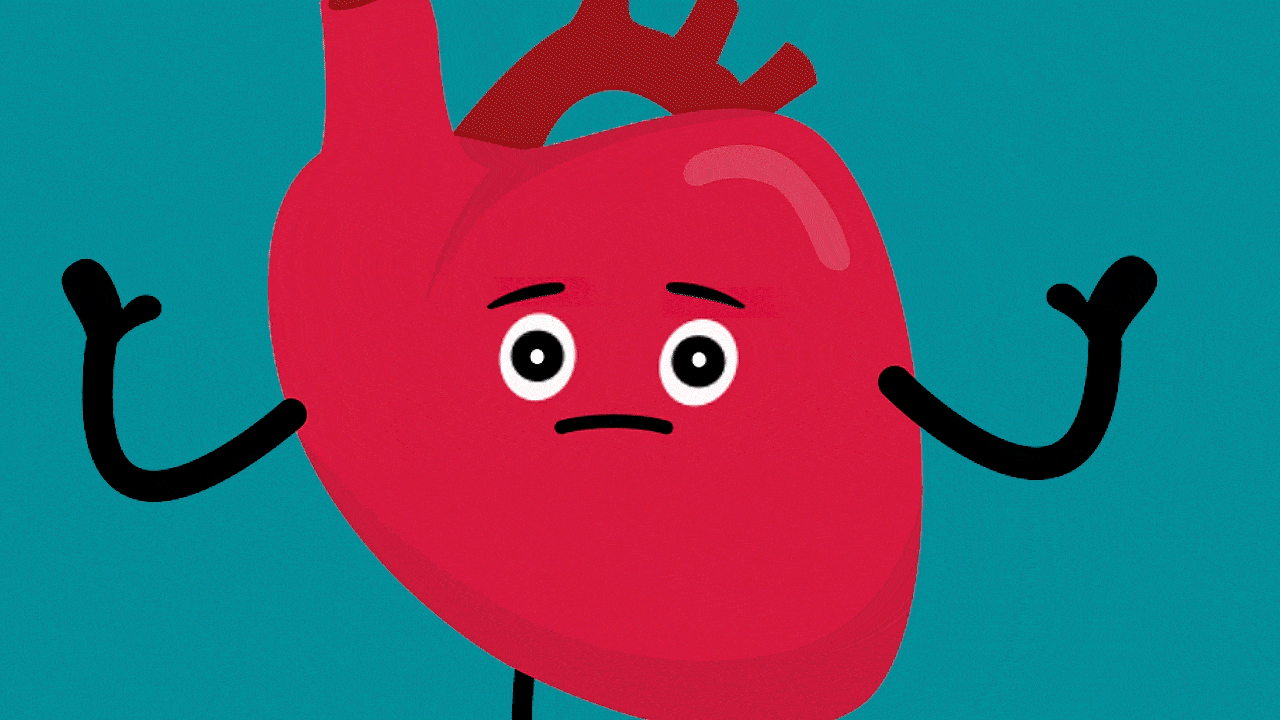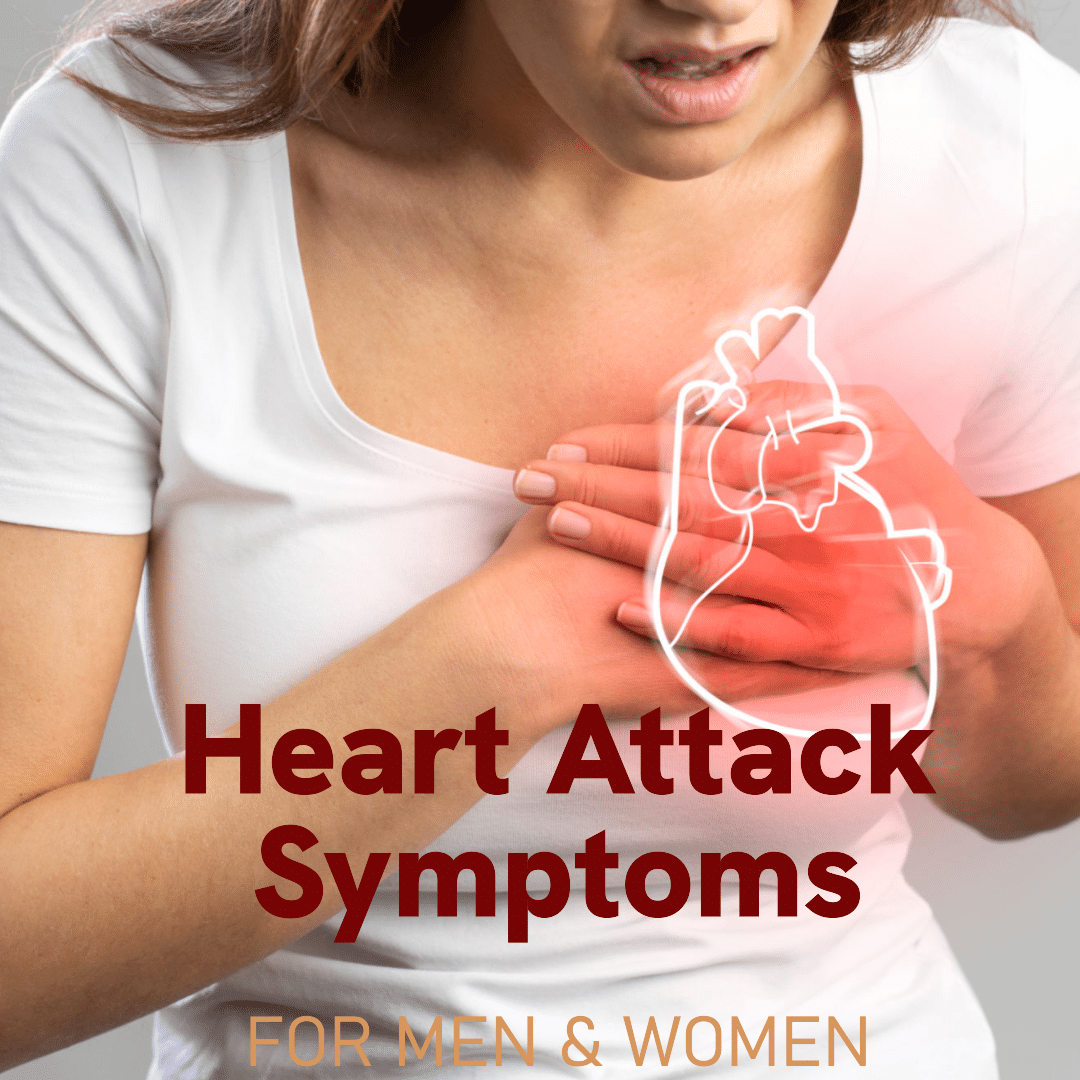A heart attack is a life-threatening medical emergency that requires immediate treatment. Heart attacks occur when blood flow to the heart muscle is blocked and your heart cannot get enough oxygen. Many people erroneously think the warning signs of a heart attack are sudden, like a movie scene where someone clutches their chest and falls to the ground. Heart attack symptoms can start slowly and can seem mild or more serious and sudden. Symptoms may also come and go over several hours.

Typical signs of having a heart attack include:
- Chest pain or discomfort, which may feel like uncomfortable squeezing, pressure, or fullness. The pain or discomfort can be mild or strong.
- Pain or discomfort in one or both arms, back, shoulders, or above the belly button
- Shortness of breath. This often comes along with chest discomfort, but shortness of breath also can happen before chest discomfort.
- Nausea or vomiting
- Feeling weak, light-headed, or faint
- Breaking out into a cold sweat or sweating a lot for no reason
Though women may experience the above heart attack symptoms just as men do, they also may experience other symptoms instead.
Additional heart attack symptoms in women include:
- Pain in the back, neck, jaw, or throat
- Problems breathing (shortness of breath)
- Dizziness
- Unusual fatigue (tiredness) and weakness, sometimes for days
- Upset stomach or indigestion
- Heartburn
- Anxiety
The more heart attack symptoms that you have, the more likely it is that you are having a heart attack. Heart attack symptoms are typically persistent, worsen over time, and don’t usually subside once activity stops.
Most heart attacks are caused by heart disease, most commonly coronary artery disease. Many risk factors for coronary artery disease like high blood pressure, high cholesterol, and obesity affect both women and men. Your age, lifestyle habits, and other medical conditions can also raise your risk of a heart attack.
If you think you or someone else may be having a heart attack, call 9-1-1 right away. Do not wait or let anyone tell you that you are overreacting. The longer a heart is deprived of oxygen, the more damage is done to the heart muscle. Treatments for opening clogged arteries work best within the first hour after a heart attack starts.
Related:


